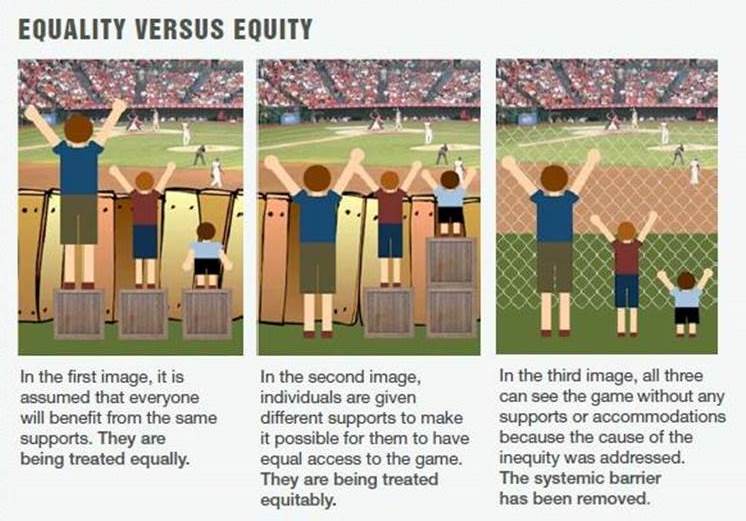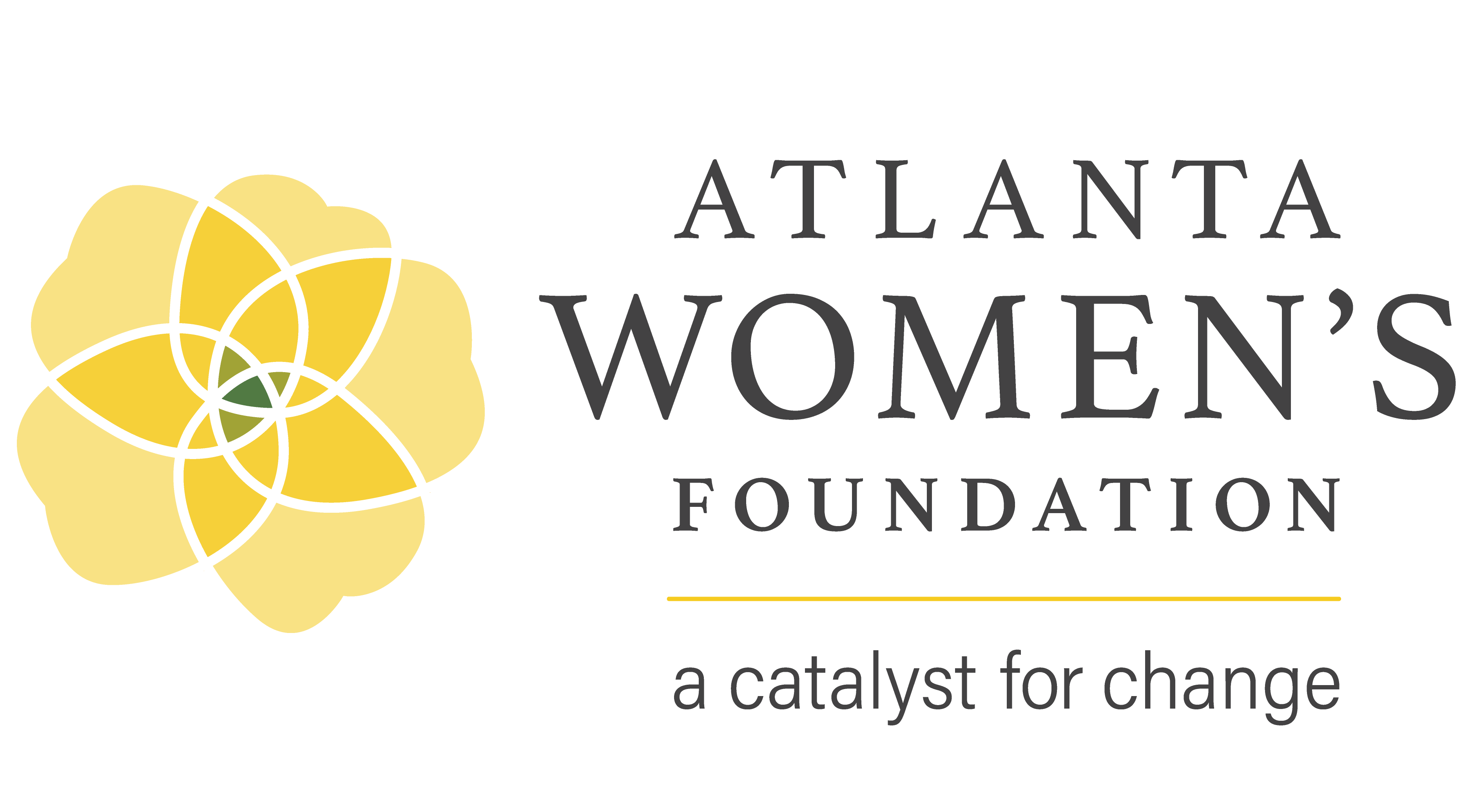Equality vs. Equity

As Women’s History Month comes to a close, we wanted to explore the concept of equality versus equity and how it applies to the work of The Atlanta Women’s Foundation. So what is the difference between these two concepts? Equality is when resources are distributed evenly; everyone receives an equal share. While equality is definitely a condition to strive for, as the above image demonstrates, the problem is that not everyone starts on equal footing. Equity addresses the barriers that people face and provides each person with the resources she needs in order to be on equal footing with everyone else. As the second panel above shows, because each person is a different height, he needs different amounts of a resource to help see over the fence. However, it is the third frame in the above image where real social change begins to happen – when barriers are removed completely. Addressing the systemic barriers women and girls living in poverty face is the heart of our work at The Atlanta Women’s Foundation.
What does poverty for women and girls look like in metro Atlanta? There are a total of 320,000 women and girls living in poverty in the five-county region AWF serves – Clayton, Cobb, DeKalb, Fulton and Gwinnett. The majority of this population is single, female, head of household with children. The average income for a family of three living at 200% of the poverty line is $40,320. What might surprise you is that 88% of metro Atlanta’s poor live in the suburbs. Living in the suburbs is a major barrier itself for those who are low-income due to a greater lack of resources compared to living in the city. They lack access to sufficient public transportation and owning a car is often too costly. There is less access to social services such as food pantries, emergency shelter, and programs such as financial literacy classes, job training or after school programs. The top seven barriers low-income women and girls in metro Atlanta face are: Childcare, Healthcare, Education, Affordable House, Transportation, Under or Unemployment, and Teen Pregnancy. Individually, each of these barriers is a challenge, but women and girls often face multiple all at once.
AWF strives to eliminate these barriers so that women and girls can become economically self-sufficient. We achieve our mission through local grantmaking , supporting public policy , producing programs , and building awareness. The largest focus of our work is on grantmaking. We support nonprofit organizations in the areas of mental and physical health, education and life skills. Our objective is to strengthen the network of nonprofits providing effective comprehensive services and eliminating systemic barriers impacting economically vulnerable girls and women.
In order to achieve the greatest impact with the funds AWF invests in the community, we have incorporated a Collective Impact Model into our grantmaking. This collective impact model involves a structured process that leads to a common agenda, shared measurement system, and continuous communication among the cohort of grantees that provide the services. The goal of the collective impact approach is to create large scale community change.
The other major focus of our work is on public policy. Because advocacy is one of the most effective ways to combat the sort of interrelated root causes of social problems and systemic factors, AWF has made advocacy and policy change a top priority. The primary public policy issue that we focus on is child care. Our public policy work incorporates three key types of advocacy: Research Advocacy – gathering of data or information to inform; Educational Advocacy – to inform and educate; and Legislative Advocacy – to impact public policy.
In 2015, The Atlanta Women’s Foundation partnered with Georgia Budget and Policy Institute to develop a report that makes the economic case for why Georgia should increase the amount of child care subsidies to help women work and the long-term economic benefit to the state of Georgia. Nearly four in 10 of Georgia’s working families with children are low-income families. Additional investment in child care assistance strengthens today’s Georgia workforce. It helps Georgia’s low-income working parents become better workers, higher wage earners, and helps unemployed parents join the ranks of the employed.
When women and girls thrive, our entire community is successful. Economically vulnerable women and girls do not have the opportunity to begin their journey at the same starting place as everyone else. AWF seeks to fill in the gaps so these women and girls can reach their goals to be successful, and live healthy, successful lives. AWF is breaking barriers to build women and girls.
Image Source: https://www.facebook.com/sumon.mamun.14/postss/10154122148431665
